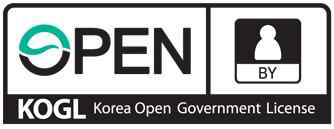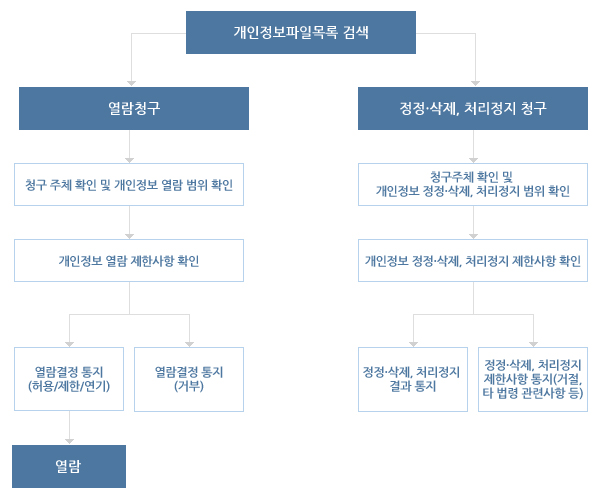Plenary Results
Plenary passes 141 bills including amendment to the Restitution of Excess Rebuilding Gains Act
- Mar 20, 2024
- 94
Plenary passes 141 bills including amendment to the Restitution of Excess Rebuilding Gains Act
- 143 agendas passed and four rejected
- Standard amount for excess gains from rebuilding charges exemption raised from KRW 30 million to KRW 80 million
- For local festivals with an undetermined or no organizer, the local government head shall establish a safety management plan
and secure support from the police and fire stations
- Non-Koreans who have resided in Korea at least six months are entitled to national health insurance as self-employed insured
- Individuals in the median or lower income brackets are exempted from paying interest on education loans
- Restructuring period for businesses with signs of insolvency is extended by three years; competitiveness of future-automotive
industry strengthened
During the 14th meeting of the 410th regular session, held on December 8, 2023, the National Assembly passed 147 items including 141 bills. The motion for “Consent for the Appointment of Chief Justice of Supreme Court (Cho Hee-dae)” was also approved.
* Motion for the Consent for Appointment of Chief Justice of Supreme Court (Cho Hee-dae)
- Total votes 292: 261 in favor, 18 against, 4 abstentions
Following are the major bills tabled for consideration:
<1> Amendment to the Restitution of Excess Rebuilding Gains Act
The amendment raises the standard exemption amount for excess gains from home reconstruction costs from KRW 30 million to KRW 80 million to reduce the burden on taxpayers.
* The amount that the Minister of Land, Infrastructure and Transport imposes and collects from excessive reconstruction gains
** The amount calculated as an increase in the value of housing in excess of the normal increase in housing prices as a result of
a reconstruction project, and which reverts to reconstruction associations or members of an association(s).
Rebuilding charges shall be imposed at a different rate per KRW 50 million in reconstruction costs, an increase from the previously bracketed amounts of KRW 20 million, to reduce the burden on taxpayers. The adjustment reflects market changes, such as rising housing prices, that have occurred in the 17 years since the launch of the rebuilding charges system in 2006.
Rebuilding charges are also reduced for long-term holders of one home in a household (at least six years since the reconstruction). The charges may be reduced by a minimum 10 percent (for those who have held a home for six to seven years) to a maximum of 70 percent (those holding a home 20 years or more).
The amendment shall be enforced three months after promulgation, and after enforcement, it will apply to reconstruction projects in which the Minister of Land, Infrastructure and Transport determines and imposes rebuilding charges.
<2> Amendment to the Framework Act on the Management of Disasters and Safety
The amendment intends to strengthen safety management of large local festivals that are operated without an organizer or whose organizer is undetermined.
If a local festival in which multiple participants are expected has no obvious organizer, the head of the local government shall establish a safety management plan.
To ensure the safe management of local festivals, the head of the central administrative agency or the head of the local government may request cooperation or a division of duties from relevant police stations, fire stations, etc., and may establish a local safety council with them.
The head of the police station shall immediately inform the head of a Si/Gun/Gu and the head of emergency rescue agencies if a disaster occurs, or signs of a disaster are observed during the performance of their duties.
<3> Amendment to the National Health Insurance Act
The amendment strengthens the requirements under which foreign nationals residing in Korea are eligible for national health insurance coverage as dependents. To become insured for health insurance as dependents, foreigners residing in Korea shall meet requirements such as residency period and visa status similar to those for foreigners who are insured as an employee.
At present, to qualify as dependents of a self-employed insured, foreigners residing in Korea must fulfill the same residency period requirement (at least six months) and the same residency criteria (e.g., marriage immigration or studying abroad) as the self-employed insured.
These requirements do not, however, apply to spouses and minor children of the employed insured.
<4> Amendment to the Special Act on Income Contingent Loan
The amendment exempts student loan debtors whose income falls below 100 percent of the median national income, as well as recipients who are paid National Basic Living Security benefits, recipients in the second-lowest income bracket, and children in a multi-child household, from interest on education loans that accrues during the period of their school enrollment and before their annual income exceeds the income threshold for repayment.
At present, only undergraduate students who are recipients of National Basic Living Security benefits, those in the second-lowest income bracket, or belong to a multi-child household are exempted from paying interest on education loans that accrues during their enrollment period. The amended Special Act expands the scope of borrowers eligible for exemption from interest by allowing them to be exempted from paying interest even after they graduate unless their annual income exceeds the income threshold for repayment.
In cases in which compulsory repayment is deferred due to reasons such as business closure, unemployment, or childcare leave, the borrower is exempted from interest accruing during that period. Borrowers residing in areas where a state disaster has been declared can also apply for deferment of compulsory repayment of their education loans.
<5> Corporate Restructuring Promotion Act
The approved Act reenacts the law with the same title that expired on October 15, and extends its period of validity by three years, providing the basis for promoting corporate improvement through workouts for enterprises showing signs of insolvency.
Parties other than financial creditors are allowed to provide new credit to contribute to the early normalization of business. If the business actively addresses tasks in accordance with decisions made by a mediation committee of financial creditors, it can be exempted from responsibility for the results.
The Financial Services Commission is required to formulate a plan for constructive reform of the corporate restructuring system and report it to the National Policy Committee of the National Assembly by Dec. 31, 2025.
<6> Special Act on Promotion of Transformation of the Future Automotive Parts Industry and Development of a Related Ecosystem
The approved bill to enact the Special Act aims to enhance the competitiveness of the future automotive parts industry and foster a sustainable ecosystem to support the industry’s soundness and growth.
The Special Act defines a future vehicle as a vehicle equipped with cutting-edge auto parts among cars that embrace eco-friendly automotive technology or future vehicle technology. To promote the development of an ecosystem for the future auto parts industry, the Special Act enables the designation of and support for specialized enterprises in future automotive parts while providing the basis for the designation of specialized zones for the future automotive parts industry.


